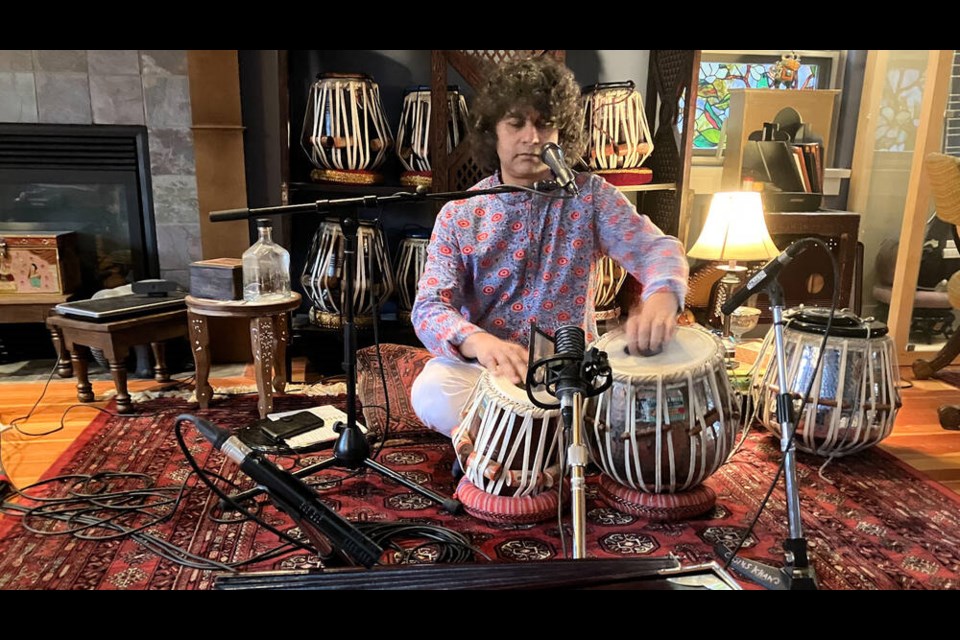He was struggling to sleep, worried he wouldn’t be able to face the next day.
But when the clock struck four, New West tabla artist Cassius Khan jumped straight out of his bed. It was an important day for him and his wife, Amika Kushwaha. It was the day they were slated to record their new album.
Khan went to grab a banana and brewed himself a hot cup of tea, sipping as the sun rose. He would have to fast for the next 12 hours.
Recording an album, especially Indian classical music, is more than just warming up your vocal chords for a couple minutes before heading into a recording studio and banging out some tunes. It is a test of strength.
In the months preceding this day, Khan spent every waking minute stretching his vocal chords, his body and hands — all for this one moment. It started with re-learning to sit cross-legged for hours straight, he said. He would spend hours performing essential hand exercises to keep his hand and fingers flexible, using massage techniques to stretch his neck and vocal muscles.
And finally, one April morning, everything was ready. Harmoniums, tablas, tamburas, swarmandals — all of the musical instruments were laid out in his home (Saraswati Bhavan, as he fondly called it). The couple were ready for the world to be able to hear their labour of love.
In a conversation with the Record, Khan said he decided to record his album at home because it was more than just a home for him. It is a musical oasis — a place that radiates positive energy and where the power of music resides, he said.
The album, titled Drenched in the Rain, follows his previous album, Mushtari, which came out in 2010. “I wanted to give myself a lot of time to redevelop my voice and work on my musicality,” he said.
The latest work, which he hopes can be mastered and released in time for his birthday on June 7, consists of six four-to-five-minute ghazals (melodic songs).
The album is completely traditional, using five different harmoniums including a 110-year-old Dwarkin Ghosh, he said.
The songs evoke a gamut of emotions, Khan said. Ghazals in general, he explained, are sad and philosophical, depicting love and heartbreak. The songs in his album will reflect the same mood, he said. “COVID allowed me to reflect a lot on my own silence. A lot of these ghazals are from poets who, in their own silence, experienced their silence. Hence, why we named the album Drenched in the Rain.”
Khan said the album came together with an almost supernatural smoothness and spontaneity.
“I feel when the two of us work together, magic is created," he said. “I just gave her a gist of what I was going to be doing. But we did not sit and work it out. We looked into each other’s eyes, we played and were able to telepathically communicate. That was the best part about the recording — how strong Amika and my heart are intertwined, especially musically.”
The whole album is an ode to their relationship, their marriage and their musicality.
Hume koi gham nahi tha, Ghume aashiqui se pehle
Naathi dhushmani kisi se, teri dosti se pehle
Which translates as:
I didn’t have any pain/sadness before your love
I didn’t have any enmity, before your friendship
These are Khan's favourite lyrics from the album.
“We have all faced this with friends and families. I resonate with those lyrics… but it is a favourite also because of the tune (raga), which was taught by my guru and took years to perfect.”
The album Drenched in the Rain will be out soon on certain streaming platforms.



